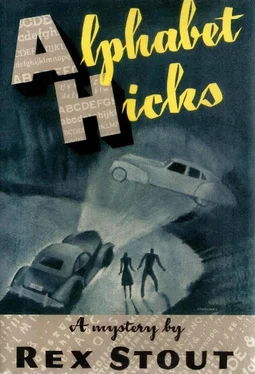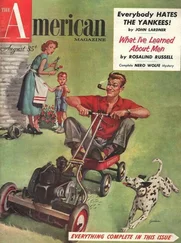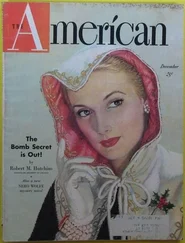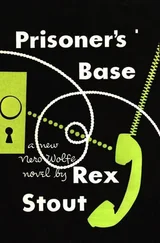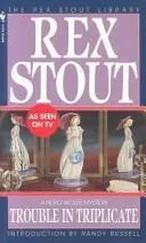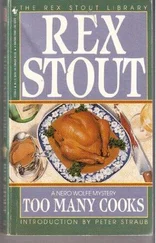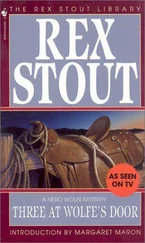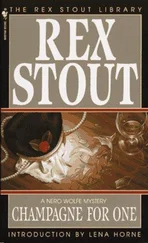The lights of a car had suddenly appeared around a curve coming from the direction of the village. Hicks reached for the edge of the compartment door and pulled it shut, telling Heather urgently:
“Bend over and vomit!”
She stared at him. His arm shot across her shoulder. “Bend over! Vomit!”
The next moment the lights were on them, and the car was stopping in the road right there, not ten feet away. A voice called:
“Having trouble?”
“Nothing serious,” Hicks said.
A man got out and approached, and as he stepped into the light Hicks saw that it was the policeman who had been sitting on the terrace with George Cooper when Hicks returned to the house.
“Oh, it’s you,” the policeman said. He looked at Heather, though with the performance she was putting on she was not specially pleasant to look at. “What’s the matter?”
“Spasmodic ejection.” Hicks kept his arms around Heather’s shoulders. “She was driving me to a train and she got sick.”
“I’m better,” Heather gasped.
The policeman went to their car and looked in, front and back, and returned. “Did you just come from the house?”
“Yes.”
“You won’t catch that train.”
“Then I’ll get one at White Plains. Do you want to run me down there? Miss Gladd ought to go home and go to bed.”
“I’m all right,” Heather said. “I will be in a minute.”
“They’ll take you home and I can take the car.”
“No, thanks. No, really.”
The policeman was looking at the ground. “You don’t seem to have got much result.”
“That’s the trouble,” Hicks said. “She only ate half a piece of toast. You can check that at the house. Ask Mrs. Powell.”
“It’s no occasion for wisecracks.”
“It’s no occasion for much of anything, if you ask me.”
The policeman looked at him, hesitated, looked at Heather, walked to his car and got in, and the car sped away.
When the sound of the car and the sight of its lights were entirely gone, Heather suddenly began to giggle.
“Stop that!” Hicks said sharply. “Stop it! Get back in the car. I’ll drive.”
“But you won’t—”
“We’re getting away from this road. Get in.”
After she was in the seat Hicks went to the rear of the car to make sure the latch of the luggage compartment was caught, then climbed in behind the wheel and took the key from his pocket and started the engine. It was less than a mile to the village. He asked Heather the way to Route 22, and she told him the turns through the village, and again they were out on the unlighted highway. Heather asked where he was going, but he didn’t reply. A couple of miles south of Katonah he suddenly left the pavement to turn right onto a narrow dirt road which almost immediately began to wind through a wood. A little farther on, at a wider spot, he steered to the roadside, stopped the car, and turned off the engine and the lights.
“It’s dark,” Heather said in a small voice.
Hicks twisted in the seat to face her, though it was indeed too dark to see much, and demanded, “What kind of a double-barreled idiot are you, anyway?”
“I am not,” she said in the same voice.
“No? What were you going to do, put me on the train and then skedaddle with him?”
“No. I wasn’t.”
“You say. What were you going to do?”
“I don’t know. But I couldn’t—” She stopped.
“How did you get him into the car?”
“I didn’t get him in. He got himself in. When I went back to the house I went to the kitchen door and he was just coming out. He had a big knife in his hand. He was crazy — I mean the way he acted and talked. He said they were going to arrest him for killing Martha, and he didn’t do it, and he wouldn’t let himself be arrested — he had me by the arm, making me go with him out to where the cars were. He had the knife, and I couldn’t call for help because I was afraid he would so something terrible with the knife — not to me, to himself. He opened the luggage compartment of a car — I think he thought it was the one he came out in, but it wasn’t, it was one that belonged there — and he crawled inside and told me to drive the car to New York. He was just simply out of his mind. I said the guard on the drive wouldn’t let me by, and he said I could if I watched for a chance and he was going to stay there until I did, and he pulled the door down and shut himself in. I opened the door and begged him to give me the knife, but he wouldn’t. So I got the key from the dash and locked the door, and kept the key. Then I didn’t know what to do. I thought if I told someone — he still had the knife. Then I thought I might get a chance to get him away and get alone with him and talk with him.”
She stopped. Hicks emitted a grunt.
Heather said, “I don’t think I’m an idiot. What about you?”
“Well, what about me?”
“When that car came and you told me to vomit.”
“Yeah,” Hicks growled. “That’s it. I simply do not like to deliver anybody to a cop. You notice I didn’t have time to figure that out, I did it instinctively. I’m mentally or morally defective or both. I don’t even believe he’s not a murderer. I guess he is.”
“He is not.”
“You seem sure of that.”
“I am sure.” Heather had a hand on his arm. “I’ve known him for years. I know he couldn’t do anything like that, not even to anyone, and not to Martha. But even if he could, if something happened to him and he did it, he would never say he didn’t do it. I know that for sure. That’s what makes me sure, I know he wouldn’t deny it, not to me anyway, no matter how crazy he was. If he did it, then he did. But he’d admit it. And he swore to me he didn’t. So I know he didn’t.”
Hicks opened the door on his side. “I’d like to get his opinion on the matter.”
Heather held onto his arm. “He has that knife—”
Hicks pulled loose, climbed out, went to the rear of the car, and opened the door of the luggage compartment. It was too dark to see anything until there was movment, when something like a leg came poking out, and then another. Hicks reached and had an elbow. The torso and head emerged, and the man was out, half erect, when suddenly he crumpled into a heap on the ground.
A croak came from him: “Jesus! Oh, Jesus!” It was much nearer prayer than profanity.
“The knife,” Heather gasped. “Is he—”
“Give me a chance,” Hicks said irritably. He lit a match and examined the man’s face and throat and chest, then lit another and stuck his head inside the luggage compartment. When he backed out and straightened up he had something in his hand, and the light of a third match showed him the clean sharp long blade of the knife. He took the blade’s tip between thumb and forefinger and sent it sailing away into the woods.
The man was struggling to arise.
“Don’t try to stand up,” Hicks told him. “Work your legs.”
“They won’t work,” the man croaked.
“Certainly they won’t work, they’re asleep.” Hicks turned to Heather. “Hold the back door of the car open.”
She was steadying herself against a fender. “But what are you going—”
“Who do you think you are, the general manager? Open the door!”
She obeyed, opening the door on the left and holding it. Hicks bent over, got an arm under Cooper’s shoulders and another under his hips, hefted him bodily, carried him with no great effort apparently to the side of the car, got a foot on the running-board, and deposited him inside on the floor. He pushed the benumbed legs out of the way, banged the door, got into the front seat, and said to Heather, who was climbing in on her side:
“I want to have a talk with him. That’s the only reason I’m doing this. For practical reasons. Tomorrow morning, as soon as he gets some food in his stomach, if he has any sense he’ll report to the district attorney at White Plains and go on through with it. Who owns this car?”
Читать дальше
